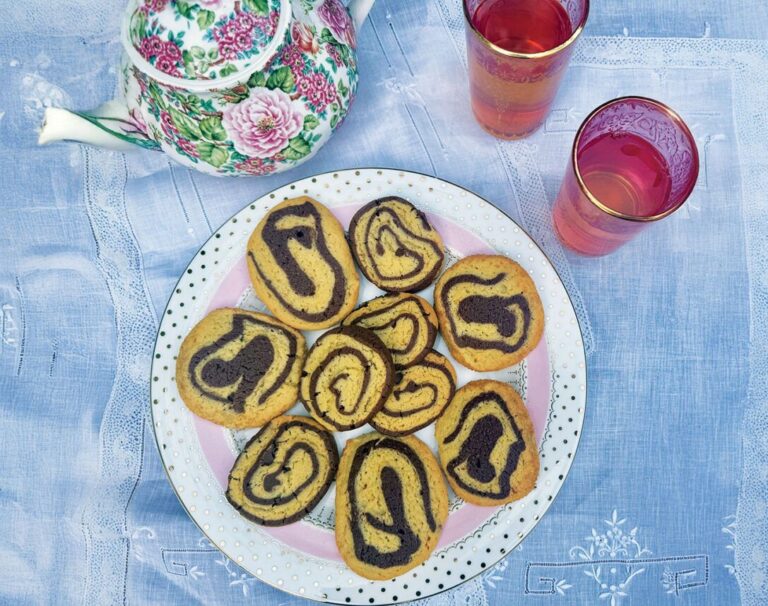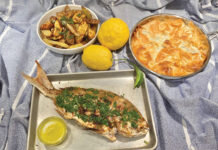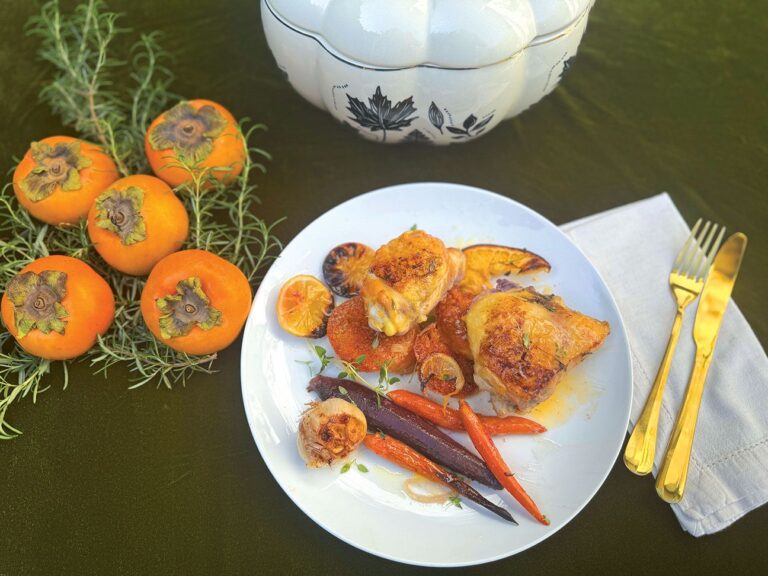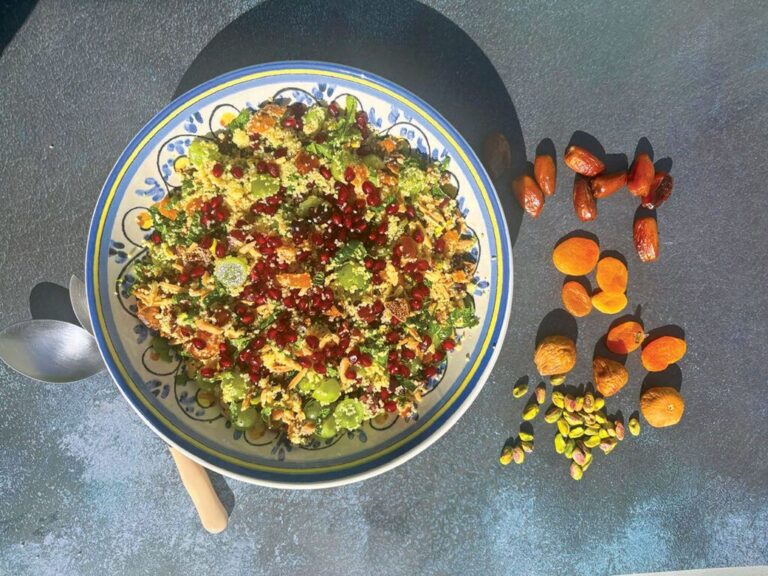A Festival To Remember: A Bottarga Board and Recipe

The Sephardic Film Festival is always one of the most glamorous, fun and memorable events on our calendar. The vibe starts when you drive through the tall gates onto the fabled Paramount Pictures lot. Strings of twinkling lights adorn the trees, there is a long red carpet and the flash of cameras outside the theater.
Pat’s Restaurant sets up large, sumptuous buffets and there are white-shirted waiters serving champagne.
Over the years, there have been wonderful honorees, like Yehoram Gaon, Lainie Kazan, Gad Elmaleh and Emmanuelle Chriqui. One year we had the legendary Enrico Macias, who generously gave a full concert. And Hank Azaria was the nicest guy (and just loved the home-made burekas from our bake sale).
Of course, all that glamour takes hard work. Neil has always been in charge of curating the films, which means that we spend hours screening movies (some fun, some boring) to find the one gem for opening night.
Created in the late 1990’s, the first film festivals were run by the powerhouse Sarita Fields and my husband Neil Sheff and all our amazing SEC friends. I was busy with young children and would mostly help on the night of the Gala. Slowly, slowly I got more involved and have been lucky enough to run the past few festivals with Sarita.
Over the years, we have screened films telling multi-faceted stories of Sephardic Jews from around the world. Tales from Morocco to Turkey, from India to Iraq, from Syria to Rhodes and more.
I am very passionate about the Festival because the profits fund the Sephardic Educational Center in the Old City of Jerusalem. I have seen firsthand the power that these scholarships have for teens, housing Israeli soldiers, educators and Rabbis from around the world.
At this year’s Festival, which opens with a gala on November 13, and continutes from November 15-20 at the Music Hall in Beverly Hills, our Master of Ceremonies is David Suissa, amazing editor of the Jewish Journal. Nira Sayegh, one of our closest friends, staunch supporter and longtime board member of the SEC, will receive the Maimonides Leadership Award.
The Sephardic Legacy Award goes to SEC alumni Michael Morhaime, the video game creator of World of Warcraft, StarCraft, Diablo and Overwatch. As a special surprise, the Cinema Sepharad Award goes to Shaun Toub and the TV series “Tehran.”
Sharon and I hope you’ll join us for another wonderful Festival.
—Rachel
Upon our discovery that the subject of the short film showing at this year’s Sephardic Film Festival was bottarga, Rachel and I just knew that we had to tell our readers about this “kosher caviar.”
The subject of the film is 87-year-old renaissance man Dan Maslia, who teaches Sephardic cooking classes to standing room only audiences at the Or VeShalom Congregation in Atlanta (founded by Jews from Rhodes).
As a young boy, he had a job cleaning fish at a fresh foods store in Atlanta. The bones and entrails of the fish were all discarded, but he would carefully salvage the mullet roe (the sac of fish eggs) to take home to his mother and aunts and neighbors. Using a recipe brought with them from Izmir, an ancient city on the Aegean coast of Turkey, the long pouches were cleaned, salted and cured on their back porches. These immigrants called the prized delicacy “abedahu”. It was a much-loved ingredient of the Ladino Shabbat meze, alongside kalamata olives, reshas (crispy crackers) and raki (an alcohol made from twice-distilled grapes, known as the national drink of Turkey).
Many years later, he and Rabbi Robert Ischay, the beloved spiritual leader of Or VeShalom, took up the craft, making bottarga side-by-side. Nowadays, Maslia has a thriving business, shipping his bottarga across oceans and shared passion for this treasured ingredient has connected him to Sephardim all over the world.
To make our own beautiful meze board, we reached out to Julien Haggiag, owner of the incomparable purveyor of fine food products, Elyon Gourmet. He tells us that he “got into the bottarga business to escape the torturous world of fashion.”
Both he and his wife were born in France; he is of Tunisian descent and his wife is of (Turkish and Greek) Rhodes descent. Their culinary traditions share similar Mediterranean influences, but above all they share an unconditional love of bottarga. His grandmother called it damchut and her grandmother called it abedahu.
Haggiag imports Safa Bottarga, which is made in France and sells at La Grande Epicerie in Paris. He initially sold it to Los Angeles kosher markets, like Western Kosher, Glatt Mart and Elat Market. But the growing popularity of bottarga means that he has growing orders from non-kosher vendors and the venerable Santa Monica Seafood has become one of his best customers.
Bottarga is subtly salty and deliciously creamy with hints of fishiness. Known as the “truffle of the seas,” Italian chefs love to shave it into their spaghetti.
Bottarga is subtly salty and deliciously creamy with hints of fishiness. Known as the “truffle of the seas,” Italian chefs love to shave it into their spaghetti. While the best-known version comes from the Mediterranean, it is also valued in Asian cuisine. There is Japanese karasumi, Taiwanese wuyutsu and Korean eoran.
Start with a little bottarga shaved into your pasta and you’ll soon grow addicted to the flavor of this delicacy.
—Sharon
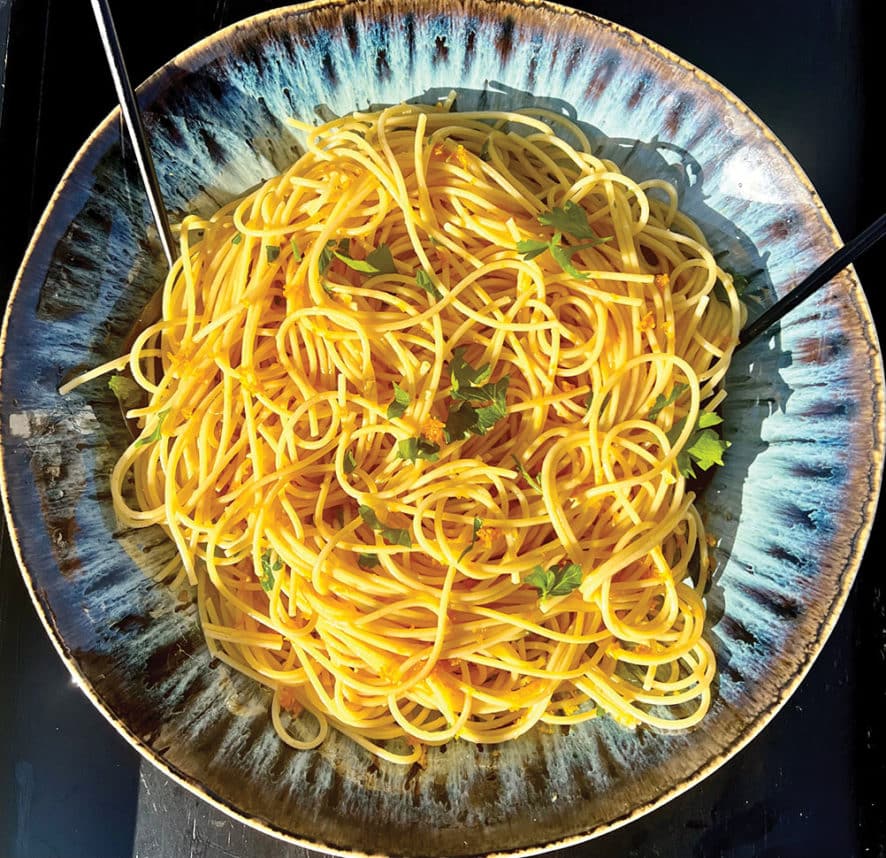
BOTTARGA SPAGHETTI
4 garlic cloves, shaved or thinly sliced
½ cup extra virgin olive oil, plus 2 more
tablespoons
Pinch of red chili flakes or Calabrian Chile
1 teaspoon fresh lemon zest
1 finger of bottarga
1/2 bunch of parsley, finely chopped
- In a small sauce pan, warm olive oil over low heat. Add garlic and sauté until golden, about 2 minutes. Remove from heat and add chili flakes and lemon zest.
- In salted water, boil pasta according to package directions. Drain pasta, reserving 1/2 cup of water.
- Toss the pasta in the garlic and olive oil. Slowly add the reserved water, until it appears creamy (it may not be necessary to use all the pasta water).
- Toss in the parsley. Shave the bottarga over the pasta.
- Finish with more shaved bottarga and lemon zest and chilli, to taste.
Sharon Gomperts and Rachel Emquies Sheff have been friends since high school. The Sephardic Spice Girls project has grown from their collaboration on events for the Sephardic Educational Center in Jerusalem. Follow them on Instagram @sephardicspicegirls and on Facebook at Sephardic Spice SEC Food

